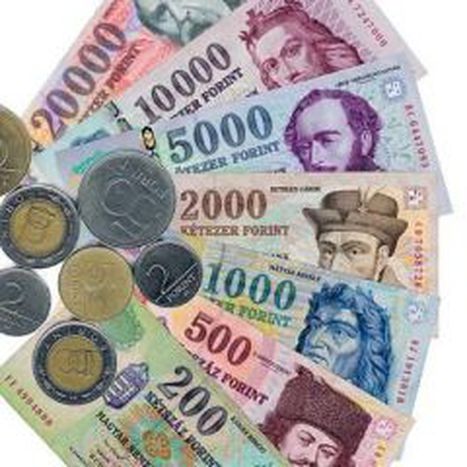
Crisis in Hungary: recovery will be hard but not impossible
Published on
In last few weeks we’ve been able to read many articles and consider scenarios concerning how to face the global financial crisis. It is clear already that the recovery in Central- Eastern-Europe will be harder than in western countries. Coupled with the fact that the Hungarian forint has had an extreme downturn, nowadays the Hungarian economy is one of the weakest in Europe.
The government has already announced that this year the economy will decrease by more than 4.5%, and there is also a chance that next year the fall will be followed by a further 2.5% reduction. „We cannot see the bottom of the hole. The Hungarian economy is before a huge downfall.” – said a leader of a Hungarian bank.
There are two topics day to day that a Hungarian can hear or read everywhere: launching the euro and state breakdown. Is there any opportunity to be able to launch the euro before meeting conditions? Or is the Hungarian economy close to a total breakdown? An expert commented that because of EU membership the failure of the state has an off-chance, but a breakdown has many factors, of course. In the case of Hungary, the biggest problem besides the large amount of national debt is the overuse of mainly foreign currency credits. According to an economist, the most illogical fact is that these credits are mainly Swiss francs, which reveals a lot about a country’s „economic thoughtlessness”. „In a country which obviously – sooner or later - will be a part of the Euro-zone, whose people are citizens of the European Union, why do they have Swiss franc credits? Will Hungary be a part of Switzerland as well?” – he asked ironically.
On the other hand, José Manuel Barosso is satisfied with facing the crisis in Hungary. Therefore, the Central-European country will receive the second part of support from Brussels, which means 6.5 billion euros of help.
The leaders of EU member countries met on 4th March in Brussels to discuss the issues connected to the crisis. Ferenc Gyurcsány said that the crisis will create a dangerous divide between East and West. "We should not allow a new iron curtain to be set up and divide Europe in two parts.", he said. The Hungarian PM came out with a proposal, namely that the wealthier countries of the EU should contribute to a special EU fund of up to 190 euros. Gyurcsány said that Hungary and another eight countries – Poland, Romania, Bulgaria, The Czech Republic, Slovakia and three Baltic states – have met before to devise their own strategy. The EU refused the proposal strongly, with Angela Merkel stating "Saying that the situation is the same for all central and eastern European states, I just don't see that". The Prime Ministers of The Czech Republic and of Poland said the same. "Looking for a Polish answer for a Polish problem." – announced the Polish Finance Minister Jacek Rostowski.
Another issue in Brussels was that of how to become involved in the Euro-zone. Now EU leaders are agreeing that there is no way to speed up the process, although according to some opinions there will be arguments related to the issue in the future.



